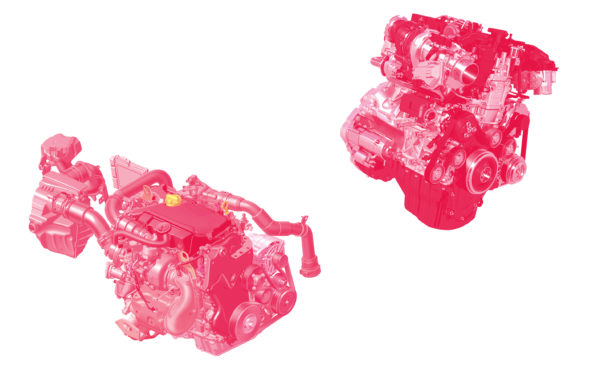Car industry calls for EU climate targets to be delayed due to coronavirus
‘We believe therefore that some adjustment would need to be made to the timing of these laws’

The car industry is pushing for the implementation of EU climate targets to be delayed due to the Coronavirus crisis, which has seen the sector’s sales plummet and its production severely disrupted.
In a statement to Unearthed, German automaker VW said: “the conditions for achieving the targets are becoming more demanding.”
It’s an admission that comes on the heels of a letter sent to EU Commission President von der Leyen earlier this week in which the auto industry’s largest associations said the pandemic and consequent shutdowns across the continent mean that compliance with the years-in-the-making regulations should be postponed.
The crisis, the letter reads, “upsets the plans we had made to prepare ourselves for complying with existing and future EU laws and regulations within the applicable deadlines set in these regulations. We believe therefore that some adjustment would need to be made to the timing of these laws.”
Though the laws from which they are seeking a reprieve remain unnamed in the letter, the group assured the Commission “it is not our intention to question the laws as such nor the underlying objectives of road safety, climate change mitigation and protection of the environment.”
It would appear as though it refers to the CO2 standards that are taking effect this and next year, and were first agreed in 2008.
Ed Collins of InfluenceMap, who first spotted the letter, told Unearthed: “This appears to signal a highly opportunistic move on the part of ACEA, seizing on the coronavirus crisis in an attempt to further what we have seen to be a long-running, strategic attempt by the auto sector to hold back the regulatory ambition of governments around EVs and tailpipe emission standards.”
Eric-Mark Huitema, Director General of the European Automobile Manufacturers Association (ACEA), which signed the letter to the Commission, told Unearthed: “In this emergency context, it has not yet been possible to undertake a detailed analysis of the implications of this crisis on legislation affecting our industry.
“Nonetheless, ACEA has already drawn the European Commission’s attention to the fact that there will inevitably be consequences in this domain, given that no production, development, testing or homologation work is able to happen now or in the foreseeable future due to company shutdowns and other measures to contain the virus.”
Industry targets CO2 targets
The letter comes as key industry players have been making similar noises about the EU’s carbon reduction plans, which would see 95% of new passenger cars achieve 95 g/km of CO2 by the end of the year — and 100% the following year.
A spokesperson for the German car lobby group VDA told Forbes: “If some manufacturers are being badly damaged and thousands of jobs were at stake, then of course there would be a debate on CO2 targets.”
And the chief operating officer of Korean car company Kia, which is a member of ACEA, told Autocar.com: “We are not at the point yet where our plans will be disrupted to a point where we can’t fulfill our promise to hit the EU target, but there is a potential worst-case scenario that we have to be prepared for.”
In the days leading up to the letter, the German car giants VW, Daimler and BMW appeared to reaffirm their intention to meet the target, although in a statement to Unearthed, a VW spokesperson said “the conditions for achieving the targets are becoming more demanding.”
“The legislation for the CO2 fleet targets in the EU has been passed. For the Volkswagen Group, the current legal situation is decisive. We are continuing our efforts to achieve the fleet targets for 2020 and the years beyond.
“However, due to the far-reaching consequences of the corona pandemic, production stoppages, including the temporary halt to our R&D activities including the homologation of new engines, transmission and of course zero emission battery electric cars and the weakness of the European car market the conditions for achieving the targets are becoming more demanding.”
Julia Poliscanova, an analyst from Brussels-based Transport and Environment, said: ““The priority now is to ensure the health, safety and job security of the workers affected by the current factory closures. While the overall economic recovery is crucial, we shouldn’t let some opportunistic carmakers use the crisis to shamelessly roll back the EU climate targets for cars.”
The ACEA’s full statement to Unearthed reads: “The primary concern of ACEA and all its members right now is to manage the immediate crisis facing the auto industry, which has essentially come to an abrupt halt – something the sector has never experienced before.
“Our first priority is to protect the health and jobs of the almost 14 million Europeans who work directly or indirectly in this sector. In parallel, we are active in directing resources to help fight the ongoing health crisis, for instance by providing vehicles and where possible medical equipment and protective gear.
“In this emergency context, it has not yet been possible to undertake a detailed analysis of the implications of this crisis on legislation affecting our industry. Nonetheless, ACEA has already drawn the European Commission’s attention to the fact that there will inevitably be consequences in this domain, given that no production, development, testing or homologation work is able to happen now or in the foreseeable future due to company shutdowns and other measures to contain the virus.
“This will require discussions between the industry and policy makers in due course. In the meantime, ACEA will work with its members to examine what the practical implications are for the most critical legislative issues. As a general principle, it should be stressed that it is not the industry’s intention to question any laws as such nor the underlying objectives of road safety, climate change mitigation and protection of the environment for example.”
Kia failed to respond to requests for comment.

